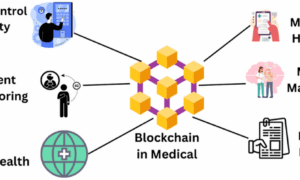In an era of rapid technological advancement, Brain-Computer Interfaces (BCIs) have emerged as a revolutionary breakthrough, blurring the line between human cognition and machine intelligence. These devices, also known as neural-control interfaces, facilitate direct communication between the human brain and external devices, opening up a world of possibilities that were once confined to the realms of science fiction. While BCIs hold immense promise for medical applications, communication enhancements, and even entertainment, they also raise profound ethical questions that demand careful consideration.
This article explores the ethical implications of Brain-Computer Interfaces, delving into the potential benefits and risks associated with this transformative technology.
Introduction
The Promise of Brain-Computer Interfaces
BCIs offer an array of potential benefits that could revolutionize various aspects of human life. Here are some of the most promising applications:
Medical Advancements: BCIs have the potential to transform the lives of individuals with disabilities. They can provide paralyzed individuals with the ability to control robotic limbs or communicate through a computer, significantly enhancing their quality of life.
Enhanced Communication: BCIs could enable direct communication between individuals, transcending language barriers and disabilities. This could be a game-changer for those with conditions like ALS, allowing them to express their thoughts and emotions.
Cognitive Augmentation: BCIs may enhance cognitive abilities, improving memory, attention, and problem-solving skills. This could be used to assist individuals with cognitive impairments or even enhance the cognitive capabilities of healthy individuals.
Entertainment and Gaming: BCIs could create entirely new forms of entertainment and gaming experiences by immersing users in virtual worlds controlled by their thoughts and emotions.
The Ethical Concerns
While the potential benefits of BCIs are exciting, they come with a host of ethical concerns that need to be addressed.
Privacy: BCIs have the potential to access the most intimate aspects of a person’s thoughts and emotions. This raises significant privacy concerns. Unauthorized access to someone’s neural data could lead to unprecedented invasions of privacy.
Security: As BCIs become more prevalent, they may become targets for hacking or manipulation. Ensuring the security of these devices is paramount to prevent potential harm.
Informed Consent: Obtaining informed consent from individuals using BCIs is a complex issue. Users must fully understand the risks and benefits, but with the evolving nature of the technology, it can be challenging to provide complete information.
Identity and Autonomy: BCIs could blur the line between an individual’s thoughts and external influences. This raises questions about personal identity and autonomy. To what extent can individuals claim their thoughts as their own if they are influenced by external devices?
Equality and Access: As BCIs advance, there’s a risk that they will exacerbate existing inequalities. Only those who can afford the technology may benefit, leaving marginalized groups behind.
Bias and Discrimination: The algorithms and data used in BCIs can reflect biases present in society. If not carefully monitored, BCIs could perpetuate discrimination and inequality.
Addiction: As BCIs enhance cognitive abilities and entertainment experiences, there’s a risk of addiction. Users may become dependent on their neural interfaces, leading to adverse health and social consequences.
Long-Term Effects: The long-term effects of BCIs on the brain and mental health are still largely unknown. Ethical concerns arise when individuals are subjected to unknown risks.
Addressing Ethical Concerns
To harness the potential of BCIs while mitigating ethical concerns, several steps can be taken:
Robust Regulation: Governments and regulatory bodies must develop and implement robust regulations to ensure the ethical use of BCIs. These regulations should cover issues like privacy, security, and informed consent.
Ethical Design: Developers of BCIs should prioritize ethical design principles, including transparency, fairness, and accountability. This involves actively identifying and addressing biases in algorithms and data.
Accessibility: Efforts should be made to ensure that BCIs are accessible to a wide range of individuals, regardless of their socio-economic status or abilities. Subsidies and support programs may be necessary.
Education and Informed Consent: Users must receive comprehensive education about the technology’s risks and benefits. Informed consent processes should be continually updated to reflect the evolving nature of BCIs.
Research and Long-Term Studies: Invest in research to understand the long-term effects of BCIs on the brain and mental health. This can inform best practices and minimize potential harm.
Public Dialogue: Engage the public in discussions about the ethical implications of BCIs. A transparent dialogue involving ethicists, scientists, policymakers, and the public can help shape responsible development and use of this technology.
Conclusion
Brain-Computer Interfaces hold immense promise for transforming human lives in unprecedented ways. They offer solutions to long-standing medical and communication challenges, but they also present profound ethical concerns related to privacy, security, identity, and equality. To fully realize the benefits of BCIs while minimizing harm, society must engage in open and informed discussions, establish strong regulations, and prioritize ethical design principles. The path forward with BCIs is not only a technological one but also a deeply ethical journey that will shape the future of humanity’s relationship with technology.

































